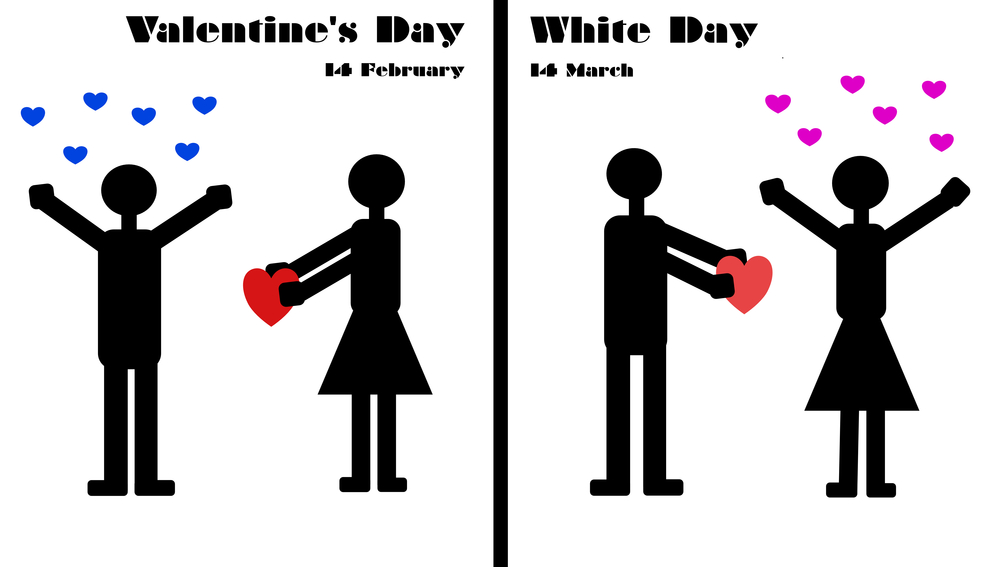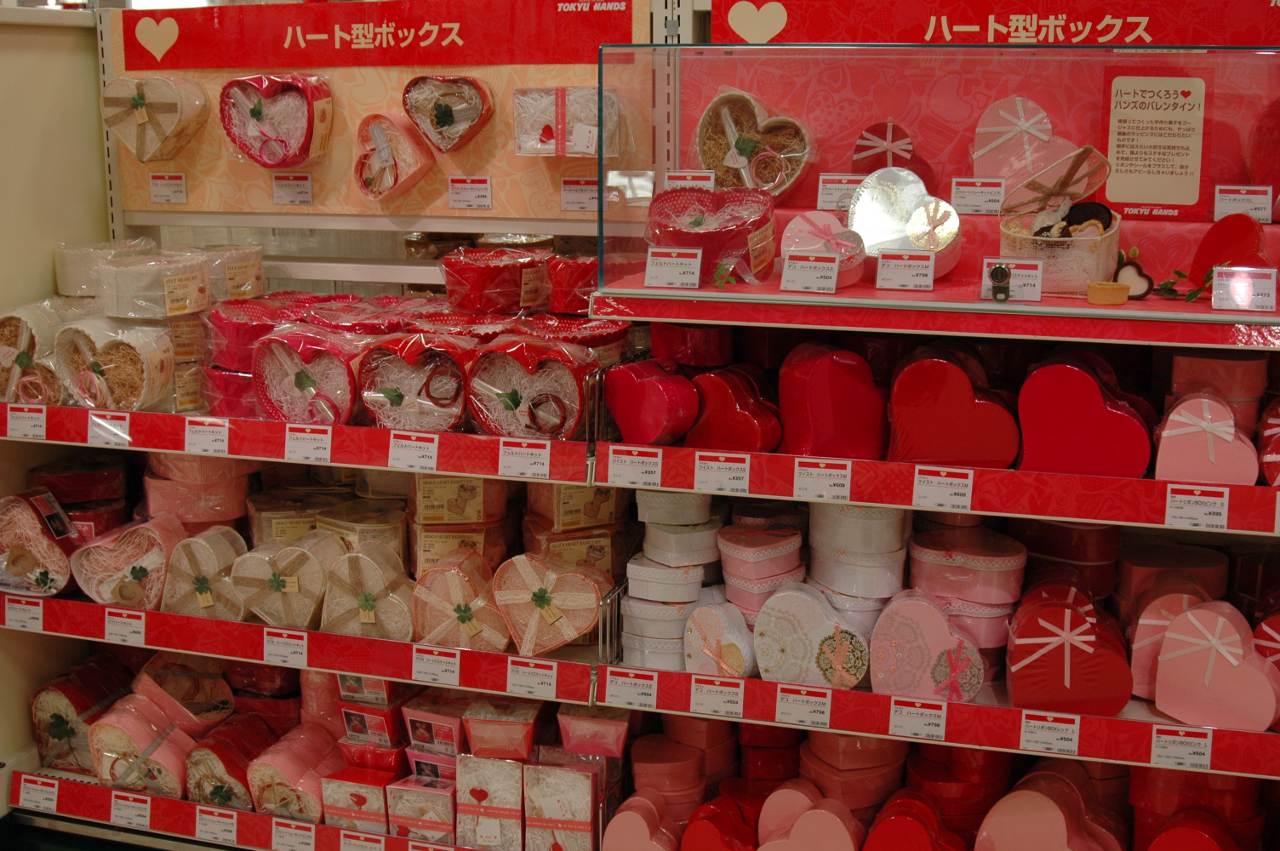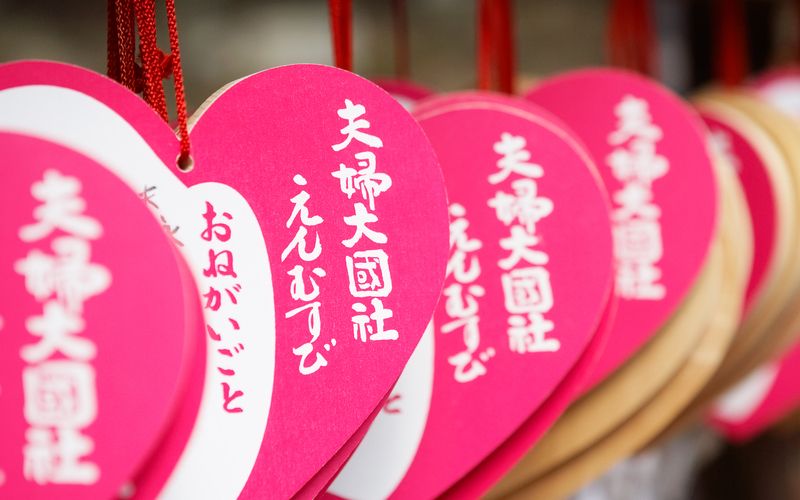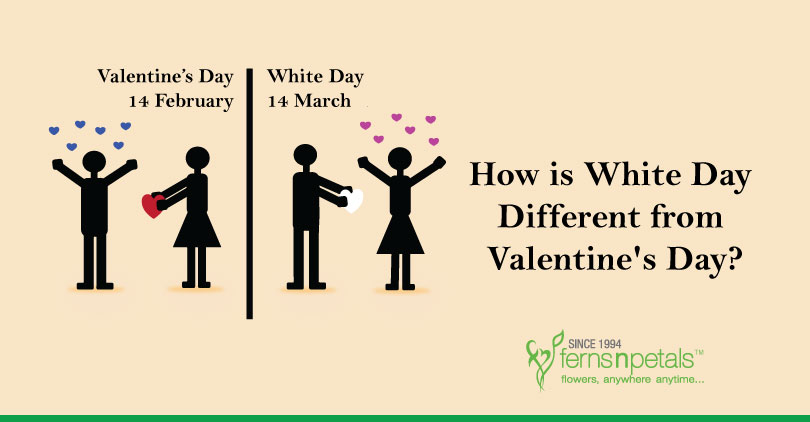Gallery
Photos from events, contest for the best costume, videos from master classes.
 |  |
 |  |
 |  |
 |  |
 |  |
 |  |
White Day happens exactly one month after Valentine’s Day on March 14th, and is basically a reply day for Valentine’s Day. Men/people who received chocolate on Valentine’s Day are expected to return the favor by gifting chocolate to women/Valentine’s Day chocolate givers. Valentine’s Day is celebrated on February 14th, while White Day in Japan is celebrated a month later, on March 14th. White Day was not actually established until the 1980s , when the Japanese National Confectionery Industry Association successfully campaigned to implement a ‘reply day’ for men to reciprocate the presents they received Japan also observes a unique reciprocal holiday on March 14th, known as White Day, where men return the favour to those who gifted them chocolates on Valentine’s Day. This was created by the confectionery industry in the late 1970s and has since become a firmly established part of our Valentine’s Day cycle. In most places celebrating Valentine’s Day, women can expect chocolates, flowers and a romantic dinner from their partner. However, in Japan, it’s the opposite: women give chocolates to the men in their lives—from their boyfriends to their coworkers—although not all chocolates are equal. The special men in their lives receive honmei choco, “true feeling” chocolates, while In Japan, Valentine's Day and White Day form a duo of unique traditions, imbued with romance and exchange. These celebrations, although inspired by Western customs, have evolved to reflect the uniqueness of Japanese culture. Discover their history, their specifics, and why they fascinate so many around the world. Valen Valentine’s Day has been celebrated in Japan since the 1930’s, although it was originally introduced with the aim of facilitating the customs of foreigners who had exchanged gifts back home. Eventually, it caught on with locals, and it was in the 1970’s that someone came up with the bright idea of creating different chocolates with As a matter of fact, Valentine's Day in Japan takes place in two steps: Valentine's Day (on February 14, initiated around 1958, by the confectionary brand Morinaga 森永); White Day (on March 14, a month later, initiated during the 1970's). Valentine's Day : gifts from women to men Valentine's Day is celebrated on February 14th. It was first introduced in Japan in the 1930s by confectionery companies targeting foreign residents. Nowadays, it has become part of the Japanese culture; however, it is quite different from the corresponding Western holiday; unlike in Western countries where both men and women give gifts to their special ones, in Japan, it is customary for White Day in Japan represents a cultural celebration of reciprocity and appreciation. It falls on March 14th, exactly one month after Valentine’s Day. On Valentine’s Day, women in Japan traditionally give gifts to men, and White Day is when men reciprocate by giving gifts to women. The gifts exchanged on White Day are typically white Valentine's Day & White Day. Of course everyone has heard of Valentine's Day, and it has become almost as big a deal here in Japan as anywhere else. Indeed it's a rare chance for the notoriously reserved Japanese people to show a bit of love. But how many of you know about White Day? No, it has nothing to do with racial pride or laundry detergent. Also Read: ULTIMATE GUIDE TO VALENTINE'S DAY IN JAPAN. Unlike Valentine's, White Day isn't an imported tradition. It originated in Japan and was inspired by the Japanese people's unique culture. White Day was also heavily influenced by the societal norms of Japan during the late 1970s. Just like Christmas, Valentine’s Day is another Western holiday that made its way to Japan. While the history of Valentine’s Day in the US and Europe goes back to a pagan festival that was celebrated almost 2000 years ago, lover’s day is relatively new in Japan. White Day in Japan (March 14th) Now, if you were thinking, “that’s a little unfair that the guys get all the gifts!” – don’t worry, because just a month later, on March 14th is when men are supposed to reciprocate all the love they received on Valentine’s Day. Such conventions can be a minefield, as any office worker in the late 1980s and early 1990s would attest. Then, Valentine’s Day came under criticism for the heavily-marketed practice of giri-choco (‘obligation chocolate’) that made many female workers feel compelled to give chocolate to their male colleagues. In Ireland, Valentine’s Day indulgences took an interesting turn, blending classic romantic favorites with modern, health-conscious treats. According to our data, a sweet carrot side dish stole the show, with a massive 2,550% increase in popularity on February 14. Test your love knowledge with these 55 fun Valentine’s Day trivia questions! Discover facts about history, traditions, and pop culture. 💕 In Japan, as previously mentioned, "White Day" is the counterpart to Valentine's Day, taking place on March 14th, where men reciprocate gifts to women who gave them chocolates or gifts on Valentine's Day. The term "White Day" in Japan signifies the tradition of men giving gifts to women, often in the form of white-themed presents like white White Day is celebrated one month after Valentine's Day, on March 14. In countries which observe White Day, typically Valentine's Day is celebrated by women and girls presenting chocolate gifts (either store-bought or handmade), usually to the other men and boys, as an expression of love, courtesy, or social obligation. White Day is celebrated annually on March 14, one month after Valentine's Day, when people give reciprocal gifts to those who gave them gifts on Valentine's Day. It began in Japan in 1978; its observance has spread to several other East Asian nations like China , Taiwan , South Korea and countries worldwide. Why is it called White Day? The holiday originated in Japan. In the 1970s, Valentine’s Day in Japan started to become more popular as a holiday for Japanese women who wanted to show their affection for men. Consequently, chocolate factories started selling white marshmallows to men a month after Valentine’s Day.
Articles and news, personal stories, interviews with experts.
Photos from events, contest for the best costume, videos from master classes.
 |  |
 |  |
 |  |
 |  |
 |  |
 |  |